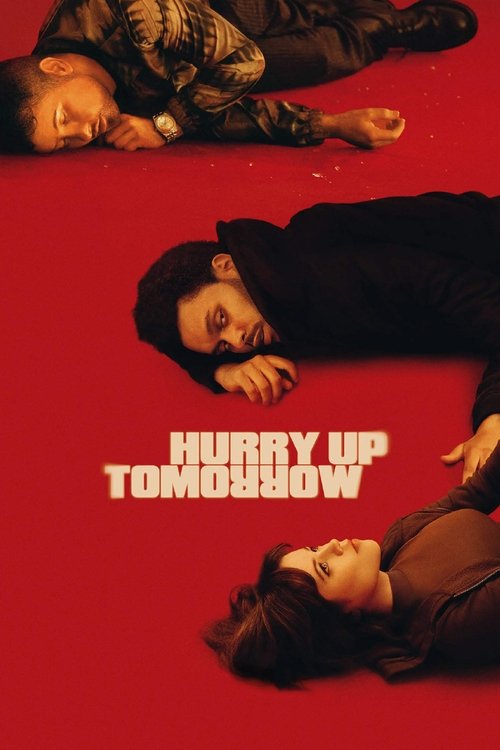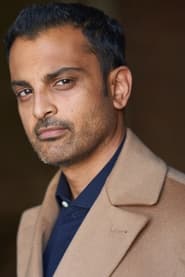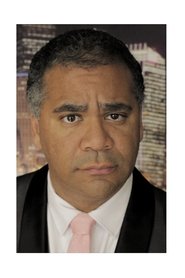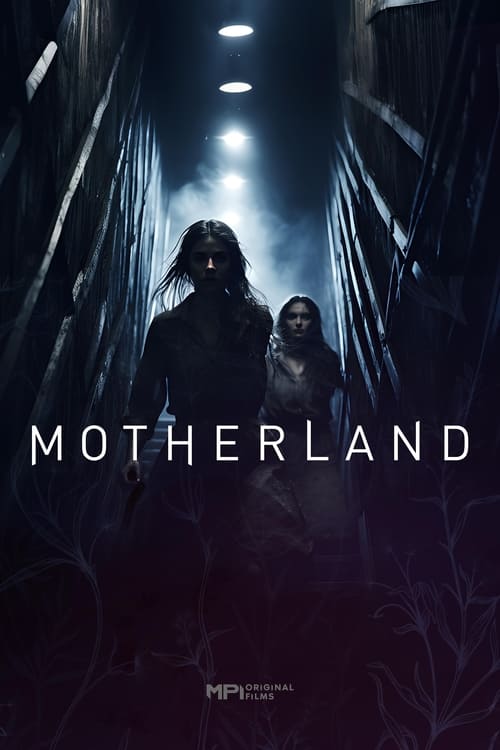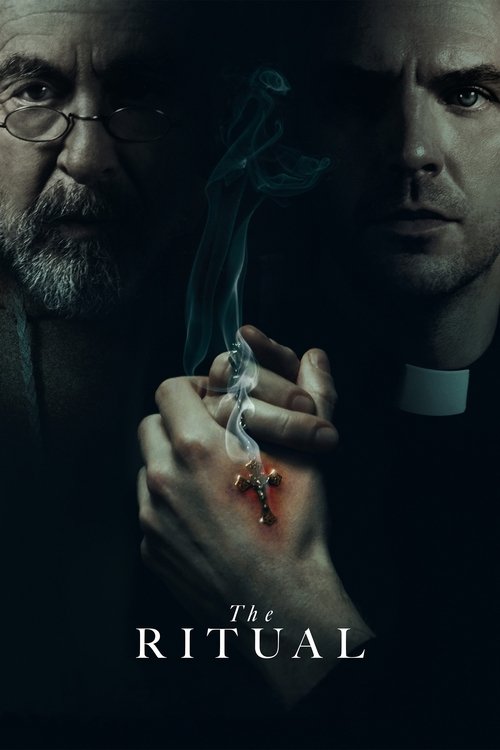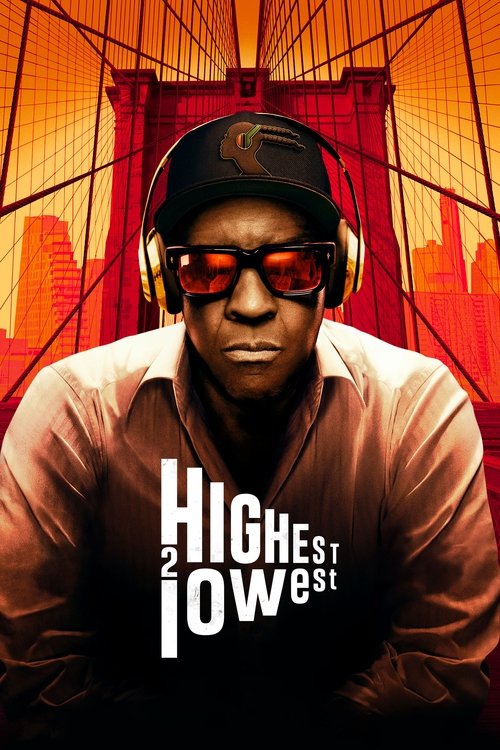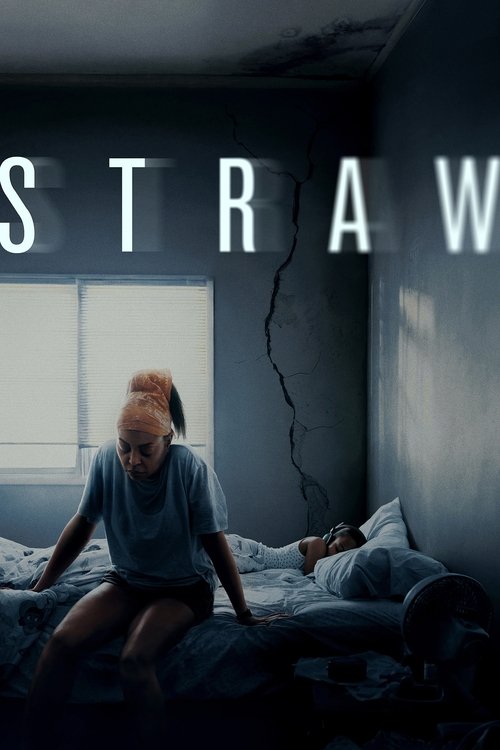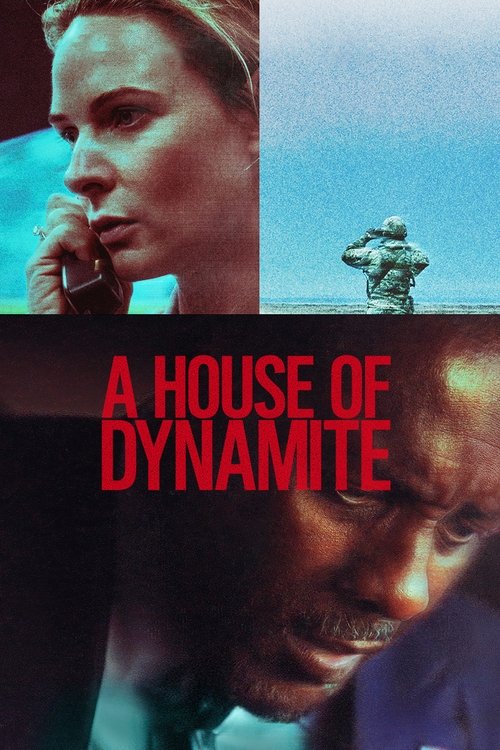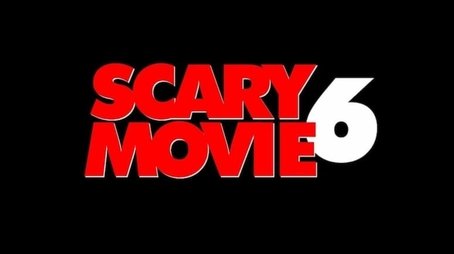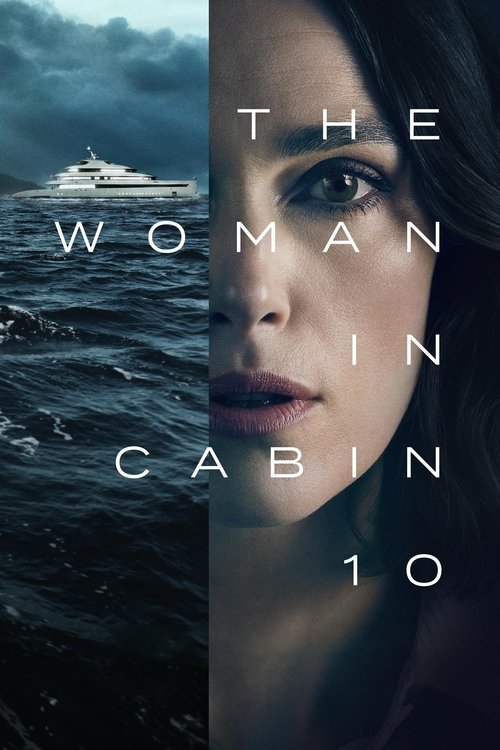
Ask Your Own Question
What is the plot?
A woman's voice opens the film, recorded as a voicemail. Riley Keough speaks into a phone, telling her former lover that he is not a good person, that he hurt her, and that she is leaving him. The message ends and the film cuts to a different young woman in a quiet suburban house outside Los Angeles. Jenna Ortega's character, Anima, pours gasoline across floors and furniture, strikes a match and watches the blaze take hold before she runs from the property. She stops at a gas station on the drive into the city to refuel, ignoring multiple incoming calls from her mother as she drives toward the evening's concert. While she flees her own burning home, she keeps her phone muted and accelerates into Los Angeles, intent on finding the show.
In a downtown hotel, Abel Tesfaye--performing as a heightened version of himself--practices vocal exercises alone. His manager, Lee (Barry Keoghan), arrives and tries to buoy Abel's confidence. Lee paces the room, urges him to relax and to trust the material, and reminds him of the crowd waiting. Abel goes through warm-ups and answers with curt, detached remarks; he drinks, stares into the mirror, and touches the hollow left by a recent breakup. After the rehearsal he walks onto a stadium stage and performs for thousands of cheering fans. Later that night Abel parties with Lee and a group of companions in a private room, taking drugs and drinking, but his mood remains heavy: he misses his ex and a pervasive sadness follows him through the afterparty.
A doctor examines Abel the day before a Halloween show and delivers a diagnosis: muscle tension dysphonia. The specialist demonstrates how the condition is affecting his voice and warns that strain could worsen the problem. Abel reacts with alarm; he considers pulling out of the concert. Lee, seeing him waver, insists he must go on. He argues that the fans need him and that canceling will only deepen Abel's isolation. After argument and pleading, Lee convinces Abel to perform that night, and Abel agrees, shoulders hunched and expression empty.
At the stadium, Anima stands in the crowd watching Abel. She sings along and loses herself in the lights. Early in the performance, Abel's vocal cords falter; on the opening note his voice cracks. He abandons the stage mid-song, walks off through the wing and into the backstage corridors. Alone in his dressing room, he records a new voicemail--angry, expletive-laced--directed at the woman from the opening message. He blames her for how hollow he feels, curses her, and says he cannot keep pretending. He hits send and drops the phone onto the couch.
Security watches the corridors; Anima slips past them and finds Abel in a narrow hallway. Abel sees her and waves a guard away with a casual, tired gesture. He walks with her into the night. The two leave the arena and move through Los Angeles together: they ride a few city blocks in silence, stop at a late-night diner and exchange small talk, and then make their way to the Santa Monica Pier. On the pier's boardwalk, under the garish lights of Pacific Park's Ferris wheel and roller coaster, they walk past crowds, exchange confidences, and sit on a bench by the water. Abel shows Anima a fragment of an unfinished song--the tune identified in studio notebooks as "Hurry Up Tomorrow" and in some live snippets as "Wake Me Up." He plays a short sample from his phone and the melody touches Anima; she begins to cry and tells him the lyrics sound like her own life, like loneliness and being left behind. Their conversation moves from celebrity and fandom to intimacy; they wander the amusement park and later ride back to Abel's hotel together.
Inside the hotel, they make love. Afterwards Abel drinks coffee and plays the unfinished track more fully, humming into the phone. Anima leans against him and tells him she recognizes herself in the refrain; she speaks of abandonment and the ache that keeps her moving. That night Abel falls asleep fitfully. He wakes into a nightmare that pulls him through a series of disjointed spaces: he walks out of the hotel room and finds the street outside empty under a pallid light; later he is forced by a closed elevator into a rusted shaft that descends into an underground tunnel where fluorescent bulbs flicker and his footsteps echo. In the dark he flees a shrieking young woman whose face dissolves into smoke. The dream fractures again and finds him in an open snowy field where a small boy--his child self--sits beside a small fire and sings a phrase of the unfinished song in Amharic. Abel wakes suddenly, heart pounding, and spends the remainder of the night staring at the ceiling.
Morning comes. Abel dresses and prepares to leave for the next performance; equipment calls begin pinging his phone. Across the room Anima answers a call from her mother. Her voice cracks as she apologizes, telling her mother that she loves her and that she is sorry she left. The conversation ends and Anima hangs up, the apology heavy on her lips. As Abel reaches for his bag, Anima grows agitated. She confronts him about leaving--about how he disappears emotionally the way others have left her. She demands he open up, to tell her what he feels. Abel refuses, blunt and dismissive; he tells her he is not interested in discussing his feelings and calls her what she has been all along: a fan. The word stings. Without further warning, Anima grabs a chilled champagne bottle from the minibar and brings it down hard across Abel's head. Blood mists against the white sheets; Abel slumps unconscious.
When he wakes, he is bound to the hotel bed with straps. The room smells faintly of perfume and disinfectant; morning light slips through blackout curtains. Anima moves around with a frenetic energy, selecting tracks from Abel's catalog and setting a playlist. She cues "Blinding Lights" and then "Gasoline," singing and dancing as she interprets the lyrics aloud. She speaks steadily to the tied man about his relationships with women, about addiction, about how his songs came from pain and abandonment; she voices her theories aloud while she circles the bed like a predator and a confessor in one body. Abel says little. He tells her he has nothing to explain, that the songs are songs, that he is tired of confessions. He refrains from answers and meets her demands with silence.
The hotel room door begins to knock. Lee arrives, having traced Abel's phone to the hotel and come despite the late hour. He knocks again, drunken insistence rough in his voice; he paces and calls Abel's name. Anima goes to the door and tries to deter him--pleading at first, then threatening--as Lee's knocks become more insistent. He breaks down the door. Alcohol makes his movements slurred but his intent clear: he is determined to take Abel and end the night. He enters the room and scours it with angry questions, demanding to know what is going on. A struggle ensues. Lee lunges toward the bed to cut Abel free; Anima counters by brandishing a knife. Lee moves with a drunken ferocity and tries to disarm her. Their bodies collide; furniture slams and a lamp smashes to the floor. In the midst of the scuffle Anima drives the knife into Lee's neck. The blade punctures his carotid; blood sprays and a high, ragged sound rips from his throat. He collapses to the carpet and begins to bleed out, grasping at the wound even as he gurgles. Anima stands over him. Lee's eyes glaze; he reaches a hand weakly toward Abel before his fingers fall limp. He dies in the hotel room, his blood seeping into the rug.
After Lee's death, Anima moves with a different resolve. She pours gasoline from a bottle over Abel's tied form and curls the fabric of the bedding toward the mattress, preparing a pyre. She tells him that he must be honest, that he must face what he has done, and threatens to light the room if he continues to refuse. She produces a lighter and holds the flame close. Abel tries to speak but his words are clipped and halting; instead he begins to sing. He lingers on the unfinished song he had shared with her--"Hurry Up Tomorrow," though earlier frames called it "Wake Me Up"--and he stretches the melody into a long, raw performance. He gives the song an intensity it has not had on stage, pouring out lines and breaths with a vulnerability Anima has demanded. The music moves her; her hands loosen on the lighter. She releases him from the straps. She does not put the knife down or apologize. Instead she uses the lighter once, strikes a match, and touches flame to the gasoline-slick sheets.
The bedding erupts into fire. Smoke fills the room in black tongues. Anima watches the blaze and waits until the flames eat the bed and the mattress collapses into ember and ash. She steps away, leaving Abel in the shower of sparks and heat as she walks toward the door. She moves through the hotel corridor past other rooms whose occupants stumble into the hallway, attracted by alarm and shrieks. Fire alarms begin to sound in the building as sprinklers activate in some hallways and fail to reach others. Anima slips away down the stairwell and into the street; she walks without haste into a nearby alley and then into the city, leaving the inferno behind.
Abel crawls from the burning hotel room, soot-streaked and singed along the edges of his clothing. He stumbles down the hallway and through the backstage corridors toward the arena door where the next performance is scheduled to begin. He passes through security and appears directly into the green room that leads to the stage. He sits before a large mirror and stares at his reflection. Smoke stains his sleeves and dried blood dots his head where the champagne bottle struck. He touches his face and watches the lines of exhaustion and shock look back at him. The camera holds on him as he breathes, the concert stage lights muffled in the distance beyond the dressing-room door. He does not speak; he only keeps looking at himself in the glass.
The film closes on Abel seated in the green room, the makeup mirror bathing his face in light as the muffled roar of a crowd builds in the background. He remains motionless, eyes fixed on his reflection, the aftermath of the night's violence and the echo of the voicemail to his ex still hanging in the air. The last image is his reflected face--smeared, stunned, and unguarded--before the frame cuts to black.
What is the ending?
At the end of Hurry Up Tomorrow, Abel, the troubled musician, is knocked unconscious by Anima after she accuses him of emotional abandonment. He then experiences a vivid, surreal nightmare where he wanders through empty streets, descends into a dark underground tunnel, and finally encounters his child self singing a haunting song in Amharic beside a fire in a snowy field.
Expanding on this ending scene by scene:
After a tense confrontation in the hotel room, Anima, feeling abandoned and desperate for emotional connection, lashes out and strikes Abel with a champagne bottle, knocking him out cold. This act plunges Abel into a dreamlike state.
In his unconsciousness, Abel first finds himself isolated inside the hotel room. He then ventures outside, only to discover the city around him is eerily deserted and silent, amplifying his sense of loneliness and disconnection.
Attempting to return to safety, Abel enters the hotel elevator, but instead of ascending, it descends unexpectedly into a dark, underground tunnel. The tunnel is shadowy and foreboding, symbolizing a journey into his subconscious or inner fears.
Within this tunnel, Abel is pursued by a shrieking young woman, a terrifying figure that seems to embody his anxieties or guilt. He flees from her, overwhelmed and vulnerable.
Finally, Abel reaches a snowy field where a fire burns. There, he encounters a younger version of himself, his child self, who sings a portion of the unfinished song "Hurry Up Tomorrow" in Amharic, Abel's native language. This poignant moment connects Abel to his roots and perhaps to a lost innocence or a deeper part of his identity.
This ending sequence unfolds as a surreal odyssey through Abel's psyche, highlighting his struggles with loneliness, abandonment, and the search for self-understanding. The stark imagery of the empty city, the dark tunnel, and the child singing by the fire encapsulate the emotional and existential conflicts that have driven the film's narrative.
Who dies?
In the 2025 film Hurry Up Tomorrow, no characters explicitly die on screen or are confirmed dead within the narrative. The plot centers on Abel Tesfaye, a music superstar struggling with depression, insomnia, and muscle tension dysphonia, and Anima, a fan who sets her house on fire before traveling to see Abel's concert. While Anima commits arson by burning her home, there is no indication that anyone dies as a result of this act or elsewhere in the film. The story focuses on psychological and emotional turmoil rather than physical death.
Key points about character fates and deaths:
- Anima sets her family's ranch home on fire but the film does not depict or mention any fatalities from this event ((https://en.wikipedia.org/wiki/Hurry_Up_Tomorrow_(film)), (https://www.rogerebert.com/reviews/hurry-up-tomorrow-weeknd-jenna-ortega-movie-review-2025)).
- Abel experiences a mental and physical breakdown, including losing his voice onstage and having a vivid nightmare, but he does not die ((https://en.wikipedia.org/wiki/Hurry_Up_Tomorrow_(film))).
- The film is described as a psychological odyssey and surrealist farewell to Abel Tesfaye's alter ego, focusing on identity and self-destruction metaphorically rather than literal death ((https://www.cosmopolitan.com/entertainment/movies/a64805680/hurry-up-tomorrow-ending-explained/)).
No other characters are reported to die, and the film's narrative emphasis is on emotional and existential crises rather than physical mortality.
Is there a post-credit scene?
The movie Hurry Up Tomorrow (2025) does not have a post-credit scene. Once the final scene concludes and the credits begin, there are no additional or hidden scenes during or after the credits. The credits run for about six minutes, but no extra plot reveals, sequel teasers, or bonus content appear afterward. Viewers can leave the theater as soon as the credits start without missing anything (sources , , , ).
What is the significance of the character Anima in the story of Hurry Up Tomorrow?
Anima is a mysterious fan who becomes deeply involved with Abel, the musician protagonist. She represents Abel's unconscious feminine side, attempting to get him to confront his repressed feelings of self-destruction and emotional pain. Her intense approach forces Abel to face his brokenness and emotional abandonment, symbolizing a spiritual and psychological confrontation necessary for his growth.
How does Abel's struggle with depression and insomnia affect the story?
Abel's depression and insomnia are central to the narrative, influencing his reluctance to perform and his emotional instability after a recent breakup. These struggles lead to his loss of voice during a concert and his subsequent existential journey, including vivid nightmares and encounters that challenge his sense of self.
What role does Abel's manager Lee play in the film?
Lee, Abel's manager, represents Abel's conscious self-presentation. He encourages Abel to perform despite his emotional turmoil and tries to minimize Abel's grief, which inadvertently causes Abel to bottle up more pain. Lee contrasts with Anima, who pushes Abel to confront his inner struggles.
What is the meaning behind the unfinished song 'Hurry Up Tomorrow' within the story?
The unfinished song 'Hurry Up Tomorrow' reflects themes of loneliness and abandonment. Abel plays a portion of it for Anima, who emotionally connects with its message. The song symbolizes Abel's internal emotional state and his struggle to express and confront his feelings.
What is the nature of Abel's nightmare sequence in the film?
Abel's nightmare involves wandering empty streets, riding a hotel elevator to an underground tunnel, fleeing from a shrieking young woman, and encountering his child self singing part of 'Hurry Up Tomorrow' in Amharic beside a fire in a snowy field. This sequence symbolizes his internal fears, unresolved trauma, and a confrontation with his past and identity.
Is this family friendly?
The movie "Hurry Up Tomorrow" (2025) is rated R and is not family friendly. It contains language throughout, drug use, some bloody violence, and brief nudity, which may be objectionable or upsetting for children or sensitive viewers. Additionally, the film includes intense psychological and surreal elements, with scenes featuring bright, rapidly flashing lights and fast-moving camera angles that could be disturbing or trigger discomfort for people with epilepsy or sensitivity to visual stimuli. The content also involves unsettling themes and disturbing moments that may linger with viewers (without revealing plot details) .
In summary, parents and sensitive viewers should be cautious due to: - Strong language - Drug use - Bloody violence - Brief nudity - Intense psychological and surreal scenes - Rapid flashing lights and camera movements
These elements make the film unsuitable for children and potentially upsetting for sensitive audiences.

